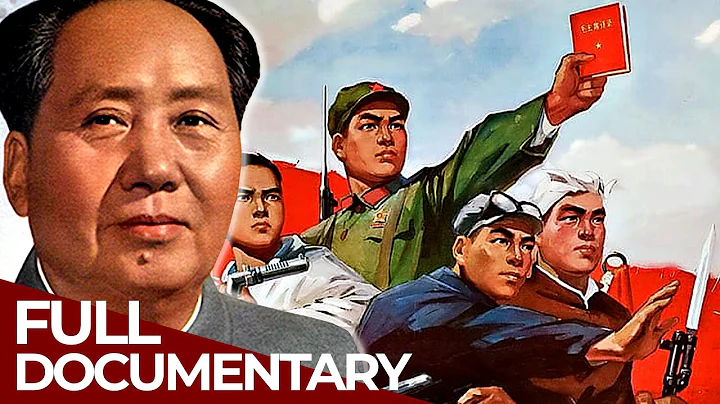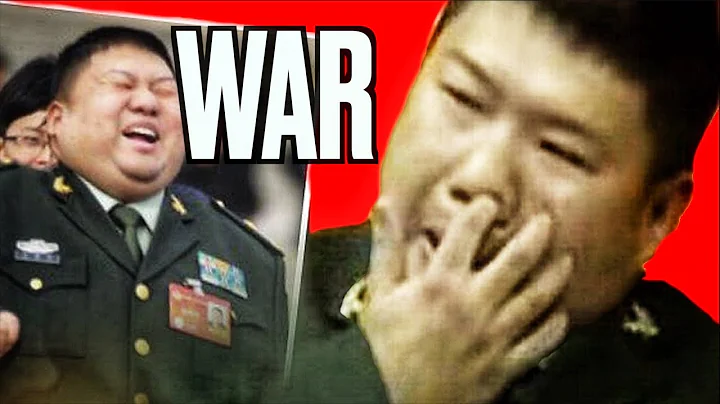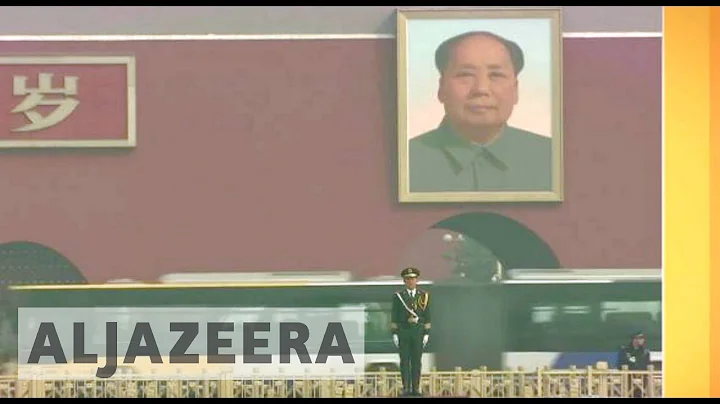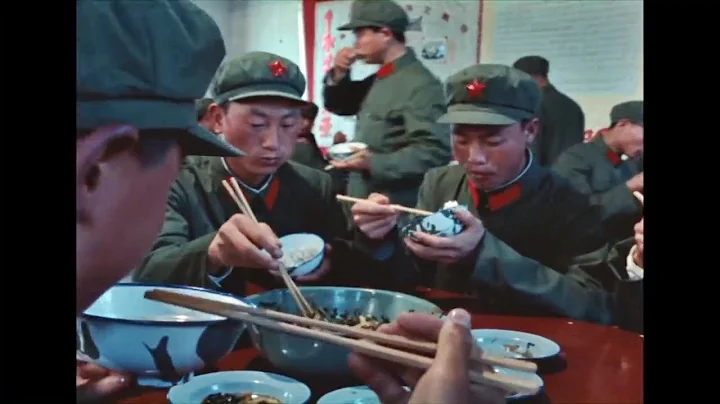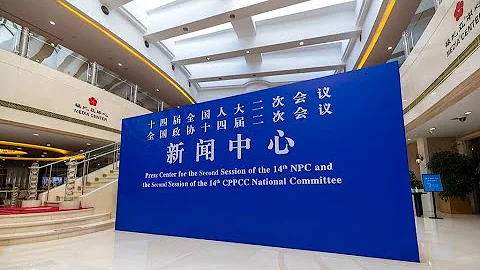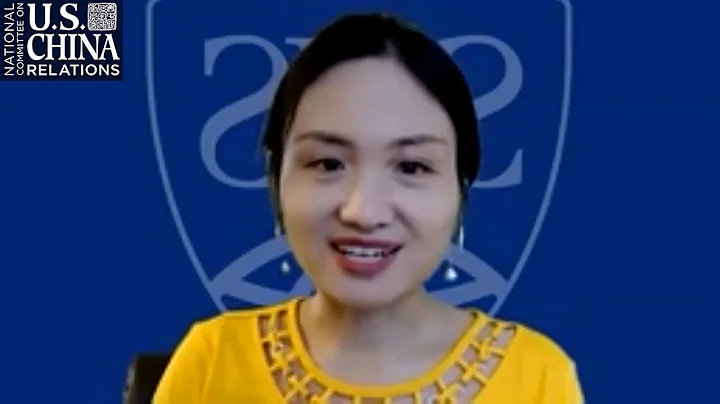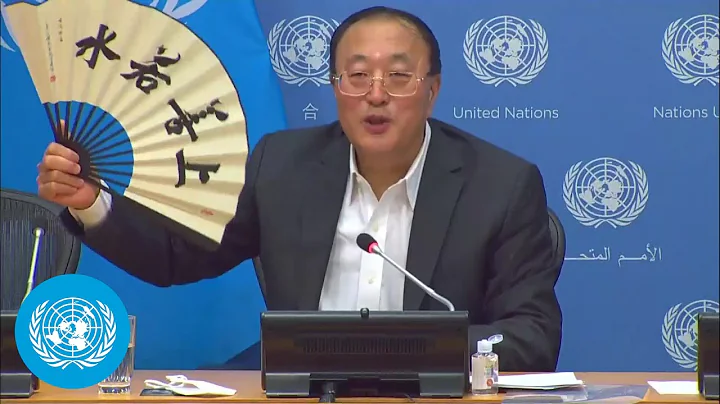"This person is proud and complacent, so it is appropriate to be awarded the title of Lieutenant General."
Before the first conferment ceremony of the Chinese People's Liberation Army in 1955, Chairman Mao received a selection list. When he saw the words Wang Jian'an in the selection list for general At that time, the above 11 words were circled here. The fact that
was on the selection list and sent to Chairman Mao undoubtedly shows that Wang Jianan's achievements are beyond doubt. In addition, after layers of screening and review, it also proves that this person's ability has been widely recognized. However, Chairman Mao crossed out this person's name after reading the selection list, which confused the selection team members.

On October 1, 1949, under the leadership of the Communist Party of China and with the united efforts of the whole country, the sleeping dragon in the East finally awakened. After a century of humiliation, the People's Republic of China was officially established.
The reason why the great revolutionary cause is great is not just created by one person. Countless heroes emerged during that difficult but shining history. After the founding of New China, awarding honors to these heroes is in line with the historical development trend of a country and is also a major event that everyone expects.
The party and the country attach great importance to this. In 1955, after five years of deliberation and planning, the Chinese People's Liberation Army military rank system with Chinese characteristics was formally established. Subsequently, the preparation and evaluation work for the award ceremony was carried out intensively. In September, the first awarding ceremony of the Chinese People's Liberation Army was held grandly in Beijing.

He has rich revolutionary experience and made great achievements during the Anti-Japanese War.
On October 12, 1908, Wang Jian'an was born in Huang'an, Hubei Province. Compared with the surprise of the birth of a new life, his birth seemed to be a little extra for this poor rural family. concern. Wang Jian'an is a very sensible and intelligent child because he has watched his parents work hard to manage the family's livelihood since he was a child. When he was very young, he went out to work as a part-time worker to help support his family. Without the conditions for going to school, he created the conditions on his own. As long as he had time, Wang Jian'an secretly studied and read.
Since Wang Jianan grew up under the dual exploitation of feudalism and colonialism, he experienced exploitation and abuse from landlords since he was a child. Finally, he couldn't bear the humiliation and left home to learn martial arts. After completing his studies, the first thing Wang Jianan did was to return to the village and go straight to the landlord's house, burn his house and distribute his money. He hated evil and dared to do This is where his daring personality begins to show.

In 1924, Wang Jianan went to Wuhan and became a leading soldier in the army of the Zhili warlord Wu Peifu. In the army, he saw the warlord's corruption and indifference, and then resolutely left the warlord's army.
In 1926, Wang Jian'an returned to his hometown, joined the Farmers Association and entered the Red Guards. In 1927, Wang Jian'an officially joined the Communist Party of China and participated in the Jute Uprising in November of the same year. Since then, he has performed well in battles many times. , gradually promoted from squad leader and platoon leader to battalion commander.
After the Long March began, Wang Jianan followed the Red Army team to climb snow-capped mountains and cross grasslands. Even though the conditions were difficult, he never thought of giving up and always gritted his teeth and persisted. In 1936, Wang Jian'an arrived in northern Shaanxi with the Red Army and entered the Anti-Japanese University of the People's Republic of China. In 1938, after graduating from the Anti-Japanese University, Wang Jian'an was appointed as the commander of the Jinpu Detachment of the Eighth Route Army and led the troops into the Hebei-Shandong border plains to fight against the Japanese army. Guerrilla warfare consumes the vitality of the Japanese army. In 1939, Wang Jian'an was transferred to the deputy commander of the Shandong Column and participated in the establishment of the anti-Japanese base area. Facing the crazy "mopping up" by the Japanese army, he led the soldiers and civilians in the base area to launch a battle against the "mopping up" and dealt a serious blow to the Japanese invaders. In addition to a fierce battle with the Japanese army, they also had to deal with a surprise attack by the Kuomintang die-hard counterattack forces.
Although the weapons, equipment and ammunition supply of the Eighth Route Army were far inferior to those of the Japanese and Kuomintang armies, under the party's overall strategic layout and operational guidance, the Eighth Route Army's combat method was mainly guerrilla. During this period, although it was difficult to organize A large-scale active offensive, but Wang Jian'an relied on his unique military understanding and bold and careful strategic deployment. He led the troops to unite the people and repeatedly broke through the so-called "mopping up" and "cannibalization" of the Japanese army, step by step to reverse the situation. The disadvantages faced by our army in the fight against Japan.

In 1941, the Japanese army assembled 50,000 troops and launched an offensive in the direction of in the Yimeng Mountain area of Yimeng. Wang Jian'an led the troops to fight tenaciously and failed the Japanese army's attempts many times. However, he also experienced a very thrilling siege.
One day, when Wang Jian'an led his troops to fight, they were besieged by the puppet army for more than 8,000 days. Although the incident happened suddenly, he always remained calm in the face of danger. After thinking for a while, he immediately ordered: Hold on first, and then wait for an opportunity to break out.
persisted until nightfall, and finally waited for the opportunity. Wang Jianan immediately ordered the troops to break out, and finally successfully retreated, causing the Japanese army's attempt to fail again.
In the spring of 1944, Shandong Military Region began to enter a critical period of the strategic counter-offensive phase. The main purpose was to annihilate the majority of the Japanese and puppet forces and uproot the Japanese strongholds in the anti-Japanese base areas. At that time, the Wu Hua Culture Department was the leader of the Shandong Japanese and puppet forces. The main force has about 10,000 troops. In order to annihilate this force, on March 25, Wang Jianan commanded the troops to fight. He divided the troops into multiple echelons. They first launched an attack on the rear of the Wuhua Ministry of Culture and Culture, and then divided them to encircle and annihilate them. After more than 20 days of fierce fighting, Wang Jianan led The troops achieved victory and achieved their combat objectives. They uprooted more than 50 Japanese and puppet strongholds, surrounded and annihilated more than 7,000 enemy troops. The Lushan Mountain area was basically controlled by our army, and the connection between the five liberated areas in Shandong was opened.
This battle won the General Commendation of the Shandong Military Region . Yan'an "Liberation Daily" also published an editorial, speaking highly of the battle:
"Not only is it important to the anti-Japanese base area in Shandong, but it is also important to our Eighth Route Army on the battlefield behind enemy lines. , part of the New Fourth Army's cooperation with frontal battlefield operations. "

participated in the command of Jinan Battle , Huaihai Battle , with outstanding capabilities
After the end of the Anti-Japanese War, in order to divide Shandong and the Central China Liberated Areas, the Kuomintang secretly turned its guns and aimed them at the Communist Party. Faced with this change, Wang Jian'an commanded the troops to win the battle of the Xu (zhou) Jin (nan) section of the Jinpu Railway and thwarted the enemy's conspiracy.
In January 1947, Wang Jian'an served as the commander and political commissar of the 8th Column of the East China Field Army. He led the troops to participate in the Battle of Laiwu in southern Shandong, The Battle of Menglianggu, and The Battle of Southwest Shandong...
In 1948, Wang Jian'an served as the East China Field Army's Eastern Column. Deputy Commander of the Line Corps, at this time, the battlefield situation in Shandong has reached a very critical point. Taking the important town of Jinan is the first problem that the Central Committee of the Communist Party of China must solve. In July, Wang Jian'an arrived at Xibaipo and met with Chairman Mao and Zhou Enlai. Zhou Enlai first asked him about his views on the liberation of Jinan, and then asked directly: "Are you sure you can conquer Jinan in 15 days?" Wang Jian'an lowered his head and thought for a moment, and responded: "If we fight continuously and no major accidents happen, we should be sure." Then, according to Chairman Mao's opinion, Zhou Enlai issued an instruction: We must capture both Jinan and To annihilate the enemy's reinforcements.

Subsequently, Wang Jian'an returned to Shandong Corps . On August 25, East China Field Army acting commander Su Yu held a military meeting. At the meeting, specific arrangements were made for the Jinan Campaign. In accordance with the instructions of Chairman Mao and Zhou Enlai, the participating troops Divided into siege and reinforcement corps, the siege corps totaled about 140,000 people and was divided into two groups, east and west, under the unified command of Tan Zhenlin, Xu Shiyou and Wang Jian'an.
htmlOn the evening of September 16, the Battle of Jinan officially started. Wang Jianan went deep into the front line to command the operation. The East Group captured Maoling Mountain and Yanchi Mountain east of Jinan City. Two days later, the West Group captured Woniushan and other places, and controlled artillery fire. The western suburbs airport cut off the air support of the Kuomintang army and made the confidence of the Jinan defenders begin to waver. html On the 119th, Wu Huawen, the Kuomintang army guarding the west of Jinan City, led an uprising and withdrew from the battlefield. Wang Jianan immediately ordered the West Group Army to seize the fighter plane and directly sent troops to capture the Xijiao Airport. Subsequently, after three days of continuous fighting, the West Group Army was defeated on the 22nd. Japan captured the commercial port. At the same time, Army Group East is also approaching the outer city of Jinan.Due to the continuous fighting, the siege corps began to show fatigue, and the defenders in Jinan City were also stepping up adjustments and deployments and strengthening fortifications. In order not to leave the defenders a chance to breathe, Wang Jian'an, Xu Shiyou, and Tan Zhenlin finally decided after discussion. Decided to launch an attack immediately.
html On the evening of the 122nd, under the cover of artillery fire, the siege regiment entered the outer city and started a street battle with the Kuomintang defenders in Jinan. On the 23rd, the outer city was breached by the People's Liberation Army. That night, the siege corps launched another offensive into Jinan City, but encountered resistance from the defenders inside the city. Coupled with the cover of city walls and fortifications, the PLA assault troops suffered heavy casualties and were blocked outside the inner city gates, making it difficult to enter.
At this time, whether should continue the attack or take a short rest , the commanders and soldiers were very entangled and thinking carefully: now the troops have suffered more sacrifices, and the organization has been disrupted. If they continue to attack, the effect will be very little, but if it is delayed, At dawn, the siege corps will be completely exposed to the enemy's artillery fire. At that time, they will become living targets and will only be annihilated. Wang Jian'an finally proposed that since the battle has reached this point, although there are many difficulties, the defenders in the city are even more difficult. Now, it is the best policy to continue to attack the city.
Subsequently, the commanders and fighters issued the order "Attack immediately and capture the inner city as soon as possible" . At dusk on the 24th, the People's Liberation Army captured Jinan and wiped out the Kuomintang defenders in the city.
After the victory of the Battle of Jinan, the Central Committee of the Communist Party of China spoke highly of it, saying that the battle was "one of the most serious blows to the enemy in the development of the revolutionary war in more than two years." Even foreign media said "For the Nanjing government, The fall of Jinan was undoubtedly a serious blow. "
On November 6, the Huaihai Campaign began. Along the Chenbing Canal of the Shandong Corps, on the 8th, Su Yu, the acting commander of the East China Field Army, sent a telegram. The content of the telegram stated: The Kuomintang general Huang Baitao is leading the attack. The Corps fled west of the canal. The Shandong Corps should take immediate action to cut off the retreat of Huang Baitao's Corps.

Subsequently, Wang Jian'an ordered each column to advance south quickly. On the 11th, the Shandong Corps seized various key points east of Xuzhou and cut off the retreat of Huang Baitao Corps. At this time, Su Yu ordered the main force of the East China Field Army to launch a siege against Huang Baitao Corps. .
On the evening of the 114th, Wang Jian'an and Tan Zhenlin commanded the main forces to launch a frontal siege against Huang Baitao's regiment, while other troops were responsible for providing reinforcements. "First attack the weak enemy, then the strong enemy, attack its leader and disrupt its deployment" , this strategy It was brought into full play in the Battle of Huaihai. On the 22nd, Huang Baitao was killed and his regiment was surrounded and annihilated. In February 1949, Wang Jianan led his troops to participate in the battle of crossing the Yangtze River.
After the founding of the People's Republic of China, he originally thought he could enjoy the good life brought by peace. In September 1952, Wang Jian'an was ordered to participate in the War to Resist U.S. Aggression and Aid Korea, led his troops to fight in North Korea, and summed up the combat experience: "Ji Xiao Victory with more results is a great victory, in order to annihilate the enemy's effective strength." This is actually in line with Chairman Mao's military thinking. In 1954, Wang Jian'an, who was suffering from illness, left the front line and returned to the embrace of the motherland.
Chairman Mao worked hard to award the rank of general, and Wang Jianan worked diligently.
From the time he participated in the Jute Uprising, to the War of Resistance Against Japan, the War of Liberation, and then to the War to Resist U.S. Aggression and Aid Korea, Wang Jianan made great achievements in these battles, whether in combat command or commanding. In terms of ability, qualifications and prestige within the party, he can be regarded as the best. During the military rank evaluation in 1955, the selectors also placed his name among the candidates for general, which is enough to show that everyone has high regard for him. Of course.

However, on this point, Chairman Mao put forward different opinions.
It is undeniable that Wang Jianan has seniority and great achievements, but he also has a fiery temper that explodes at the slightest moment. He has repeatedly slapped the table and challenged his superiors at meetings. These things have long been spread to the central government.
This time, Chairman Mao suggested granting him the rank of lieutenant general with good intentions, hoping to help him get rid of this problem of his. However, according to the standards for awarding military ranks, many generals who do not have the qualifications and military exploits of Wang Jian'an have been awarded the rank of general. If only Lieutenant General Wang Jian'an is awarded to Lieutenant General Wang Jian'an, it does not meet the selection criteria. However, Chairman Mao also specifically mentioned Wang Jian'an. Jian'an.
In the end, he was in a dilemma. In the 1955 award, Wang Jianan did not receive a military rank. In 1956, after a year's delay, the evaluation team again raised the issue of Wang Jian'an's military rank. At this time, Chairman Mao also agreed to the decision to award him the rank of general.
At this time, Wang Jian'an no longer had the problem of "shooting the case". In 1956, Wang Jian'an worked in the Shenyang Military Region, Jinan Military Region and Fuzhou Military Region, but his position was always deputy commander. And his comrades in arms at the same time, and even his former subordinates, have become commanders of military regions. Wang Jianan has no complaints about this. He never complains and always says that the position of is not important. The most important thing is Can contribute to the party and the country. Marshal Ye Jianying once said to him:
"Since the founding of the People's Republic of China, you have worked hard and without complaint, regardless of your position. It is not easy!"
Wang Jian'an's changes most pleased Chairman Mao. In 1975, Wang Jian'an was personally named by Chairman Mao to serve as an advisor to the Central Military Commission, providing advice and suggestions for the People's Liberation Army's transformation into modernization.

In order to understand the actual situation of each military region, Wang Jianan personally went to various places to conduct in-depth investigation work on the front lines. His diligent work has been left in various places in the motherland. He was called by the "Liberation Daily" as "the old Eighth Route style and the excellent example of our party's seeking truth from facts" "Traditional" benchmark.
In 1979, Wang Jian'an went with a delegation to Kunming to visit the troops fighting in self-defense and counterattack against Vietnam. During the visit in Yunnan, the delegation always adhered to the principle of traveling by van, having four dishes and one soup for each meal, and not banqueting.
Wang Jianan once worked at the Central Commission for Discipline Inspection. No matter how many letters and calls he received, Wang Jianan always insisted on replying to them. He truly responded to every letter. Almost all letters and calls related to the military had to go through his review. . When facing his old comrades-in-arms and subordinates, Wang Jian'an never takes sides, insists on doing business with integrity, and reports truthfully to others. He even encouraged Communist Party members to seek truth from facts and tell the truth:
"Communist Party members must dare to tell the truth and reflect problems realistically, for fear of ghosts! Not only must written materials be distributed, but Secretary Wang Jian'an must also speak out when he sees him. ”
In addition to being strict with himself and adhering to principles at work, Wang Jianan is even more strict when it comes to treating his relatives and children. After his wife obeyed the organization's decision to retire from the army, she originally had several opportunities to return to the army, but Wang Jian'an always disagreed.
Since the 1970s, Wang Jianan has been traveling abroad for research all year round due to work reasons. The heavy workload made his already existing health problems worse. Due to the huge work pressure and lack of adequate rest, by July 1980, Wang Jian'an's body can no longer support him to continue working. On the 25th, Wang Jianan died of illness in Beijing.

After his death, no one came to express condolences, and many people even learned of his death after a long period of time.
In fact, as early as when he was seriously ill, Wang Jianan had repeatedly requested the central government not to hold a memorial service or send wreaths after his death to avoid wasting manpower and material resources. He even said many times that it would be better to have his ashes Scattered in the countryside, it will fertilize the land after death.
These requirements were what he kept mumbling before his death. He reiterated many times that he hoped that he would not be extravagant or wasteful after his death. When
was dying, he did not even allow his children to go home to visit the doctor. He emphasized many times that his children are not his own private property. They have to serve the country and the people, and their work cannot be delayed because of their own affairs. . In this way, his children did not get to see their father for the last time.
In the end, Wang Jian'an's family respected his last words and simply held the funeral at home:
"No memorial service, no wreaths, no organization to say farewell to the body, no notification of friends before his death, and no comrades to escort the body." ".

In accordance with Wang Jianan's last will and testament, his body was sent to Beijing 301 Hospital for medical research. It was not until the media issued relevant reports that his former comrades and subordinates learned of the sad news of his death.
Whether it was war years or peacetime, Wang Jianan never forgot his mission and never gave in on major issues of principle. When he was young, he looked for a direction for his life and finally established his lifelong ideals and beliefs. In middle age, For the sake of the nation, country and people, he took up the gun and went to the battlefield to kill the enemy. In his later years, he traveled across the country to conduct research and contribute to the construction of New China. After his death, he also donated his body to Medical Research.
His spirit will be passed down from generation to generation of Chinese people. He has passed away, but his spirit will last forever and will always shine on the booming China.




